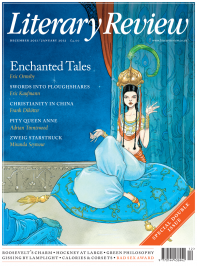Lucy Popescu
Ragip Zarakolu & Büsra Ersanli
I’ve written about the courageous Turkish writer, publisher and academic Ragip Zarakolu at various times in these pages, most recently in May 2010.
Zarakolu is renowned for publishing books that are considered controversial in Turkey. He was first detained in 1971, accused of involvement with a communist organisation and sentenced to three years in prison after refusing to abandon a campaign advocating freedom of expression and ‘respect for different thoughts and cultures in Turkey’. Between 1971 and 1991, Zarakolu was banned from travelling outside Turkey. He co-founded a publishing house with his wife in 1977, but found that his own writings and those he tried to publish were repeatedly banned. In recent years he has been judicially harassed for translating books from Armenian and Greek into Turkish and for publishing books by political prisoners.
In late October, over forty people were arrested under what is known in Turkey as the Democratic Society Congress or Koma Civaken Kurdistan (KCK) operation. The KCK is considered to be the civil and political wing of the outlawed Kurdistan Workers Party (PKK), and is therefore illegal in Turkey. Another organisation linked to the KCK is the Peace and Democracy Party (BDP).
On 28 October 2011, Zarakolu and Büsra Ersanli, a professor based at Marmara University’s faculty of Political Science and International Relations in Istanbul, were detained as part of this crackdown. Ersanli is an expert on constitutional law and at the time of her arrest she was working with the BDP’s Constitutional Commission.
In the days running up to his arrest, Zarakolu had been campaigning for the release of his son, Deniz Zarakolu, who had been imprisoned three weeks earlier on 7 October, also in the KCK operation. Deniz is a PhD student of political thought and has translated various academic works including Thomas Hobbes’s De Cive.
On 1 November, Zarakolu and Ersanli were formally charged with ‘membership of an illegal organisation’ under Turkey’s anti-terror law. The Turkish news website Bianet.org reported that during their hearing, hundreds of people gathered outside the Istanbul courthouse in protest, holding copies of Ersanli’s book Peace and History and chanting slogans demanding their release.
The following day, Zarakolu released an open letter from prison stating:
My arrest and the accusations of being a member of an illegal organisation are part of a campaign to intimidate all intellectuals and democrats living in Turkey and, more specifically, to isolate Kurds.The police forces that searched my home found nothing more than what you would normally find in a writer’s home and confiscated these items as ‘evidence’.
Among the books confiscated were Habiba by Ender Öndes which was published and is freely sold in Turkey, the second volume of Dogan Özgüden’s Vatansiz Gazeteciler (Stateless Journalists), Baris Süreci (Peace Process) by Yüksel Genç, and two manuscripts, one about the Armenian genocide and the other about Armenian history.
Zarakolu added:
I have not been asked a single question regarding the organisation I am accused of being a member of; rather, I have only been pressed on works that I have written or edited, speeches I have given, and free and public meetings I have attended.
I believe that it is time to show a collective opposition to this wave of arrests, which has become a campaign of mass lynching, and that all moves by the authorities that go against the law and principles of due legal process must now cease.
Last year, Zarakolu was one of fifty writers chosen to represent PEN’s Writers in Prison Committee’s 50th Anniversary Campaign – ‘Because Writers Speak Their Minds’. PEN believes that the charges against Zarakolu and Ersanli are in violation of their right to freedom of expression.
Readers might like to send appeals that condemn the charges against Ragip Zarakolu and Büsra Ersanli and call for their immediate release; that express concern at the arrests of Deniz Zarakolu and other writers and journalists for their alleged affiliation with Kurdish political parties; that point out that these arrests are in violation of international standards protecting the rights to freedom of expression and association as guaranteed by both the International Covenant on Civil and Political Rights, and the European Convention on Human and Democratic Rights, to which Turkey is a signatory; and that raise concerns that the trials are politically motivated and do not conform to fair legal practice.
Appeals to be addressed to:
His Excellency Mr Ahmet Ünal Çeviköz
Turkish Embassy
43 Belgrave Square
London
SW1X 8PA
Fax: 020 7393 0066

Sign Up to our newsletter
Receive free articles, highlights from the archive, news, details of prizes, and much more.@Lit_Review
Follow Literary Review on Twitter
Twitter Feed
It wasn’t until 1825 that Pepys’s diary became available for the first time. How it was eventually decrypted and published is a story of subterfuge and duplicity.
Kate Loveman tells the tale.
Kate Loveman - Publishing Pepys
Kate Loveman: Publishing Pepys
literaryreview.co.uk
Arthur Christopher Benson was a pillar of the Edwardian establishment. He was supremely well connected. As his newly published diaries reveal, he was also riotously indiscreet.
Piers Brendon compares Benson’s journals to others from the 20th century.
Piers Brendon - Land of Dopes & Tories
Piers Brendon: Land of Dopes & Tories - The Benson Diaries: Selections from the Diary of Arthur Christopher Benson by Eamon Duffy & Ronald Hyam (edd)
literaryreview.co.uk
Of the siblings Gwen and Augustus John, it is Augustus who has commanded most attention from collectors and connoisseurs.
Was he really the finer artist, asks Tanya Harrod, or is it time Gwen emerged from her brother’s shadow?
Tanya Harrod - Cut from the Same Canvas
Tanya Harrod: Cut from the Same Canvas - Artists, Siblings, Visionaries: The Lives and Loves of Gwen and Augustus John by Judith Mackrell
literaryreview.co.uk